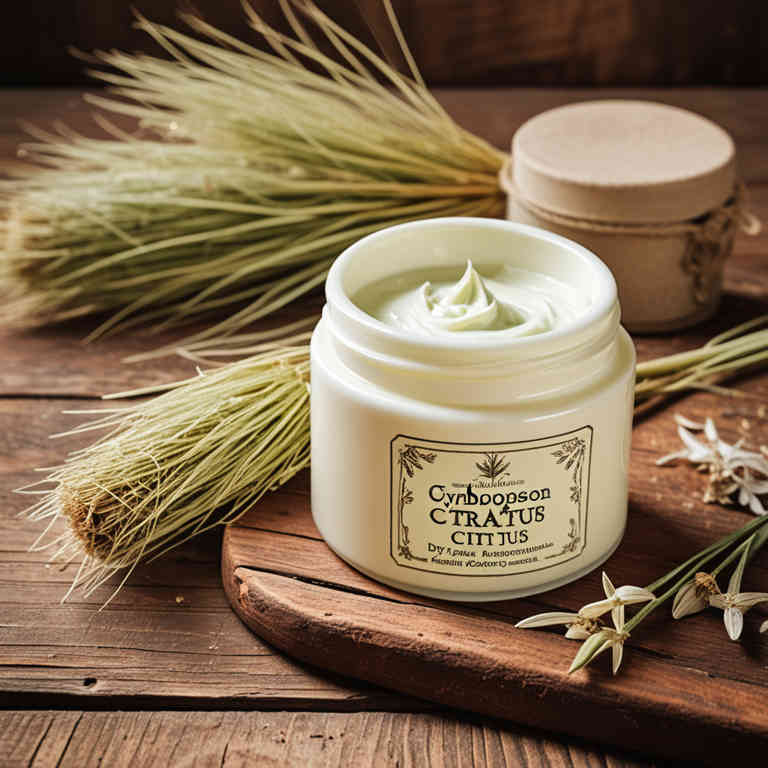Cymbopogon citratus cream for medicinal use

Cymbopogon citratus cream is a topical herbal preparation made from the essential oil of lemongrass, which is derived from the dried leaves of the Cymbopogon citratus plant.
This cream is commonly used in herbalism for its calming and anti-inflammatory properties. It is often applied to the skin to relieve muscle pain, reduce inflammation, and promote relaxation. The active compounds in lemongrass, such as citral and geraniol, contribute to its therapeutic effects.
It is particularly favored in aromatherapy and natural medicine for its soothing and uplifting qualities.
Uses
Cymbopogon citratus cream has been used to treat various ailments, particularly those related to skin conditions and inflammation.
Historically, it has been utilized in traditional medicine systems such as Ayurveda and Chinese medicine for its antiseptic and anti-inflammatory properties. In modern times, it is commonly used in topical formulations to alleviate symptoms of eczema, psoriasis, and other dermatological issues. The cream is also valued for its calming effects, often incorporated into aromatherapy and stress relief products.
Its continued use reflects a blend of ancient wisdom and contemporary scientific validation.
Benefits
Cymbopogon citratus cream has health benefits such as reducing inflammation, promoting skin healing, and providing a calming effect.
This herbal preparation, derived from lemon grass, is known for its antimicrobial and antioxidant properties. It can help soothe skin irritations and may alleviate symptoms of conditions like eczema and psoriasis. The natural compounds in the cream support skin health by fighting bacteria and reducing oxidative stress.
Additionally, it may contribute to a sense of relaxation and well-being when applied topically.
Constituents
Cymbopogon citratus cream active constituents include citral, geraniol, and myrcene, which are essential oils derived from the lemon grass plant.
These compounds possess antimicrobial, anti-inflammatory, and analgesic properties that contribute to the cream's therapeutic effects. Citral is particularly noted for its ability to combat bacterial and fungal infections, making it beneficial for skin conditions. Geraniol has soothing properties that can help reduce skin irritation and redness.
Myrcene provides additional anti-inflammatory support, enhancing the overall effectiveness of the cream for various dermatological applications.
Preparation
To make Cymbopogon citratus cream, start by gathering fresh lemongrass stalks, a base of coconut milk or a dairy-free alternative, and a few other ingredients like honey or vanilla extract for flavor.
Wash and chop the lemongrass finely to release its aromatic oils. In a blender or food processor, combine the chopped lemongrass with the coconut milk and blend until smooth. Strain the mixture through a fine mesh sieve to remove any fibrous bits, then mix in the honey or vanilla extract.
Finally, chill the cream in the refrigerator for at least an hour before serving, allowing the flavors to meld and the cream to set.
Side Effects
Cymbopogon citratus cream may lead to skin irritation or allergic reactions in some individuals due to its essential oil content.
It is often used for its calming and antiseptic properties, making it popular in aromatherapy and topical treatments. However, prolonged use could result in sensitization or contact dermatitis, especially in those with sensitive skin. Some users may experience a burning sensation or redness at the application site.
It is important to perform a patch test before using this cream and consult a healthcare professional if adverse effects occur.